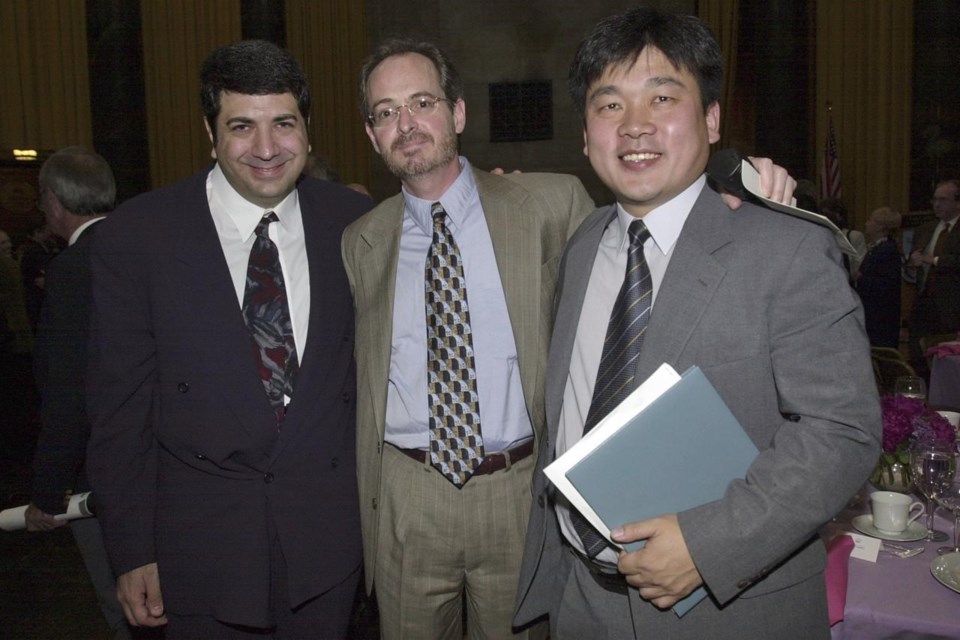LANSING, Mich. (AP) — J. Robert Port, who led The Associated Press investigative team when it won a Pulitzer for the Korean War No Gun Ri massacre probe, has died at age 68.
Port died Saturday in Lansing, Michigan, according to his sister, Susan Deller. He had been treated for cancer for more than seven years by the U.S. Department of Veterans Affairs.
Hired by The Associated Press in 1995 as special assignment editor, Port led the Pulitzer Prize-winning No Gun Ri reporting that exposed a mass killing of civilians by US troops during the Korean War.
The killings happened when U.S. and South Korean troops were being driven south by North Korean invaders, and northern infiltrators were reportedly disguising themselves as South Korean refugees.
On July 26, 1950, outside the South Korean village of No Gun Ri, civilians ordered south by U.S. troops were stopped by a battalion of the U.S. 7th Cavalry Regiment, and then attacked by U.S. warplanes. Survivors who fled under a railroad bridge were then fired on by 7th Cavalry troops for several days. Korean witnesses estimated 100 were killed in the air attack and 300 under the bridge, mostly women and children.
In the 1990s, petitions were filed by Korean survivors to U.S. authorities, demanding an investigation, an apology and compensation.
The petitions were not acted upon until, in 1999, The AP reported it had confirmed the mass killing, having found 7th Cavalry veterans who corroborated the accounts of Korean survivors. The AP also uncovered declassified files showing U.S. commanders at the time ordered units to shoot civilians in the war zone.
In 2001, the Army acknowledged the No Gun Ri killings but assigned no blame, calling it a “deeply regrettable accompaniment to a war.” President Bill Clinton issued a statement of regret, but no apology or compensation was offered.
Under Port’s guidance, The AP team had confirmed the facts of No Gun Ri by mid-1998, but publication of the previously unknown U.S. war atrocity didn’t come until the following year.
“Without Bob’s determination and smarts, up against an AP leadership troubled by such an explosive report, the exposure of a major historic U.S. war crime would not have been finally published and exposed, a full year after it was confirmed by our reporting,” said Charles Hanley, lead writer on the No Gun Ri reporting.
In 2000, The AP team, which also included reporters Sang-hun Choe and Martha Mendoza and researcher Randy Herschaft, was awarded the Pulitzer Prize for Investigative Reporting.
Port also led major investigations into illegal child labor in the U.S., which prompted a change in how laws were enforced.
Port later worked for other media organizations including the New York Daily News and The Times Union of Albany where he was also investigations editor. In 2012, the Albany County Sheriff’s appeared to retaliate against Port and his wife, Bin Cheng, after a series of stories that called into question the practices of an Albany County sheriff's drug unit. Charges were eventually dropped.
Before joining The AP, Port worked for the St. Petersburg Times in Florida for 12 years as a team leader or lead reporter on special projects. He was also an adjunct professor at Columbia University Graduate School of Journalism for 11 years, teaching investigative techniques.
Port was born in Bryn Mawr, Pennsylvania, and attended Dickinson College in Carlisle, Pennsylvania, before entering the U.S. Air Force, serving in aircraft electronics at MacDill Air Force Base in Florida. He later obtained a bachelor of arts degree from the University of South Florida.
The Associated Press



